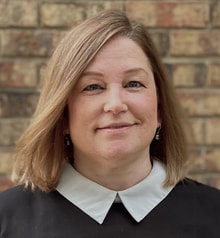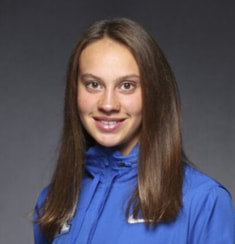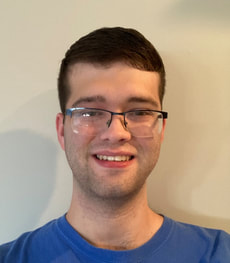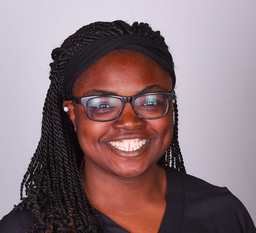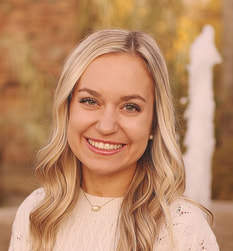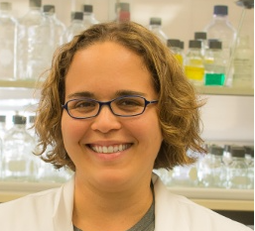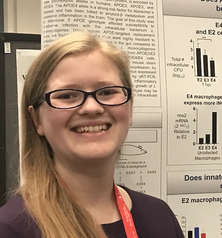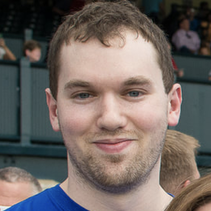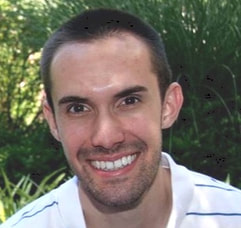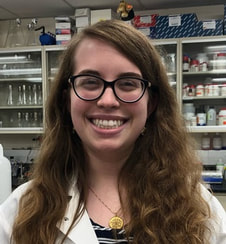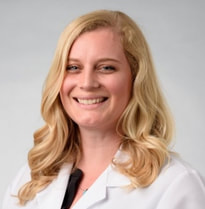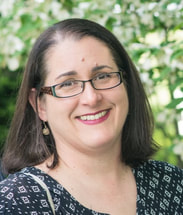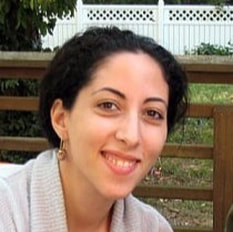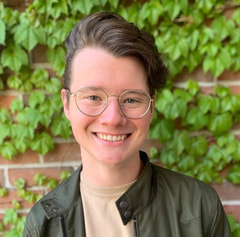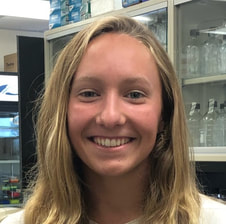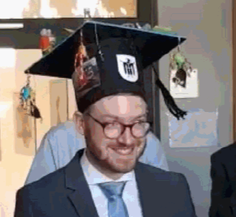|
|
|
Current D'Orazio Lab members
|
Sarah E.F. D'Orazio, Ph.D.
Sarah has a B.S. in Medical Technology from Albany College of Pharmacy. She completed her Ph.D. training in bacterial pathogenesis in the laboratory of Carleen Collins at the University of Miami and postdoctoral training in immunology in the lab of Michael Starnbach at Harvard Medical School. She's been a faculty member at UK since Oct. 2004. Caroline Benda
Caroline is from a rural area in Maryland. She's an Ag Biotech major who is currently doing a summer project to look at inlB expression in various Listeria strains. In the fall she'll develop her own project for her major. In much of her free time, she's in the pool as she's a member of the UK Women's Swim team. Maxwell Rhoads
Maxwell is an Ag Biotech major with strong interests in both bacteria and viruses. He's generating an OhyA mutant of Listeria to determine if this gene product plays a role in virulence of listeriosis, a project we'll do in collaboration with new MING faculty member Dr. Chris Radka. |
Jamila Tucker, M.S.
Jamila is from Chattanooga, TN. She got a B.S. in Biology at UT-Chattanooga, and then she moved to Middle Tennessee State Univ. where she obtained her M.S. degree. She joined the lab in July 2020. She showed that egress of Listeria from the MLN requires cell-to-cell spread, and she is investigating the ability of various myeloid & stromal subsets in in the MLN to support intracellular growth. Andrew Mallamaci
Andrew is from North Canton, OH. He is is a pre-med Biology major who is investigating the role of an internalin-like protein expressed by neurotropic Listeria strain UKVDL9 in causing brainstem infections. He also plays the alto saxophone in the UK Marching Band. Lilly Bauer
Lilly is a Biology major pursuing minors in both Microbiology and Spanish. She plans to attend graduate school to obtain a PhD. She spent summer 2023 doing an undergraduate research fellowship at NIH, and started her own project in the lab looking at the role of inlH/inlD in invasion of various cell types. |
Joshua Nowacki, B.S.
Joshua is from the Louisville area and he is a graduate of Centre College. He joined the lab as a Ph.D. student in 2022 and is studying the mechanisms used by Listeria to disseminate to the mesenteric lymph nodes following food borne infection. Joshua is also an accomplished musician, and he likes to bake! Anna Puderbaugh
Anna is from Center Grove, IN. She's a pre-med neuroscience major who started undergraduate research in the lab in Spring 2021. She is investigating the role of gene 356 expressed by neurotropic strain UKVDL9 in causing rhombencephalitis. |
|
Undergraduate students progressing towards an independent project in the lab:
Katie Bates, Abby Dukes, Jazdin Weatherbie |
D'Orazio Lab Alumni
|
Michelle G. Pitts, Ph.D.
Michelle explored differences in the the course of Listeria infection following oral and i.v. transmission. She found that the excessively robust type I IFN response that mediates lymphocyte death and promotes growth of Listeria in the spleen is likely to be an artifact of the i.v. model. She also showed that PMNs harvested from either susceptible BALB/c or C57BL/6 mice could readily kill Listeria, but infection-induced production of PGE2 hampered the killing function of PMN. Michelle is currently a postdoc in Vince Venditto's Lab in the UK College of Pharmacy. Katie L. Alexander, B.S.
Katie is a graduate of the Gatton Academy of Mathematics and Science, graduated from the UK Honors College in 2020. She studied the role of ApoE variants on susceptibility to food borne listeriosis. She is currently a PhD candidate in Microbiology & Immunology at Emory University. Travis Combs, M.S.
Travis helped Michelle develop an in vitro killing assay for neutrophils harvested from murine bone marrow. He is currently a medical student at UK College of Medicine. Jooyoung Cho, M.S.
Jooyoung is originally from South Korea. She came to central KY to complete her B.S. and and M.S. in chemistry at Eastern Kentucky University. She worked for several years in the Dept. of Ophthalmology and for 2 years as the D'Orazio Lab Manager. In Fall 2021, she enrolled in the UK Dental School. |
Grant S. Jones, Ph.D.
Grant started in the lab as an undergraduate, helping to develop the foodborne model of listeriosis. As a grad student, he showed that most Listeria in the gut were extracellular, but replication in an as yet-unidentified cell type was required for dissemination to the MLN. He found that Ly6CHI monocytes were the predominant cell type associated with Listeria, but were not efficiently invaded by the bacteria. He also showed that dendritic cells harvested from the murine gut did not support intracellular replication of Listeria. Grant did a postdoc in Bill Goldman's Lab at UNC and is currently a Staff Scientist at BioAgilytix. Taylor E. Senay, B.S.
Taylor is also a graduate of the Gatton Academy of Mathematics and Science and graduated from the UK Honors College in 2021. Taylor was first author on our study reporting neurotropic strains of Listeria that cause brainstem infections in mice. and she is currently pursuing a PhD at U. Penn. Hilary Denney Crutcher, M.S., M.D.
Hilary used CD137-deficient mice to explore the role of M cells in translocation of Listeria across the gut mucosa for her master's thesis. She subsequently completed an M.D. at UK College of Medicine and is currently a Resident in Pediatrics. Tanya Myers-Morales, M.S.
Tanya refined many of the techniques we use to fractionate gut tissue to harvest bacteria from either the mucus, epithelial cells, or lamina propria. She also showed that differences in gut microbiota do not contribute to the differential susceptibility of BALB and C57BL/6 mice to Listeria infection. Tanya is currently a staff scientist in Erin Garcia's Lab at UK. |
Elsa N. Bou Ghanem, Ph.D.
Elsa's early graduate work at UK focused on the ability of CD8+ T cells from either mice or humans to rapidly secrete IFN-gamma in an antigen-independent manner during Listeria infection. She demonstrated T cell-intrinsic differences in responsiveness to IL-12 & IL-18. Elsa worked for more than a year to develop the foodborne model of listeriosis that we now use extensively in the lab, and importantly, she showed that InlA was not required to establish intestinal infection. After leaving the lab, she did a postdoc with John Leong at Tufts Medical Center. Elsa is currently an Assistant Professor at SUNY Buffalo in the Dept. of Microbiology and Immunology. Tanner Durst, B.S.
Tanner is from West Virginia. He's a Biology major pursuing a minor in Microbiology here at UK. He started an independent project in Fall 2021 to study how a novel internally-like protein encoded by neurotropic Listeria promotes invasion of enteric glial cells. When he graduated in 2023, he enrolled in a PhD program at Vanderbilt. Taylor M. Albrecht
Taylor was a student enrolled in the Math Science & Technology Center at Dunbar High School. She joined us in the lab every other day during her junior and senior years to complete a required research project for her STEM-focused magnet program. She characterized the distribution of inlF within our strain collection and closed most of the gaps in the draft genome sequence of neurotropic strain 2010L-2198. She is now a pre-med student at Rhodes College in Memphis. Jakob Schardt, Ph.D.
Jakob spent a few months with us as a visiting Scholar from Technische University Munchen, Germany. He tested several mutant strains of Listeria that he had generated and found that bacteria with a defective 1,2-propanediol degradation pathway were unable to persist as well as wild type Listeria in the lumen of the colon following food borne transmission. |
